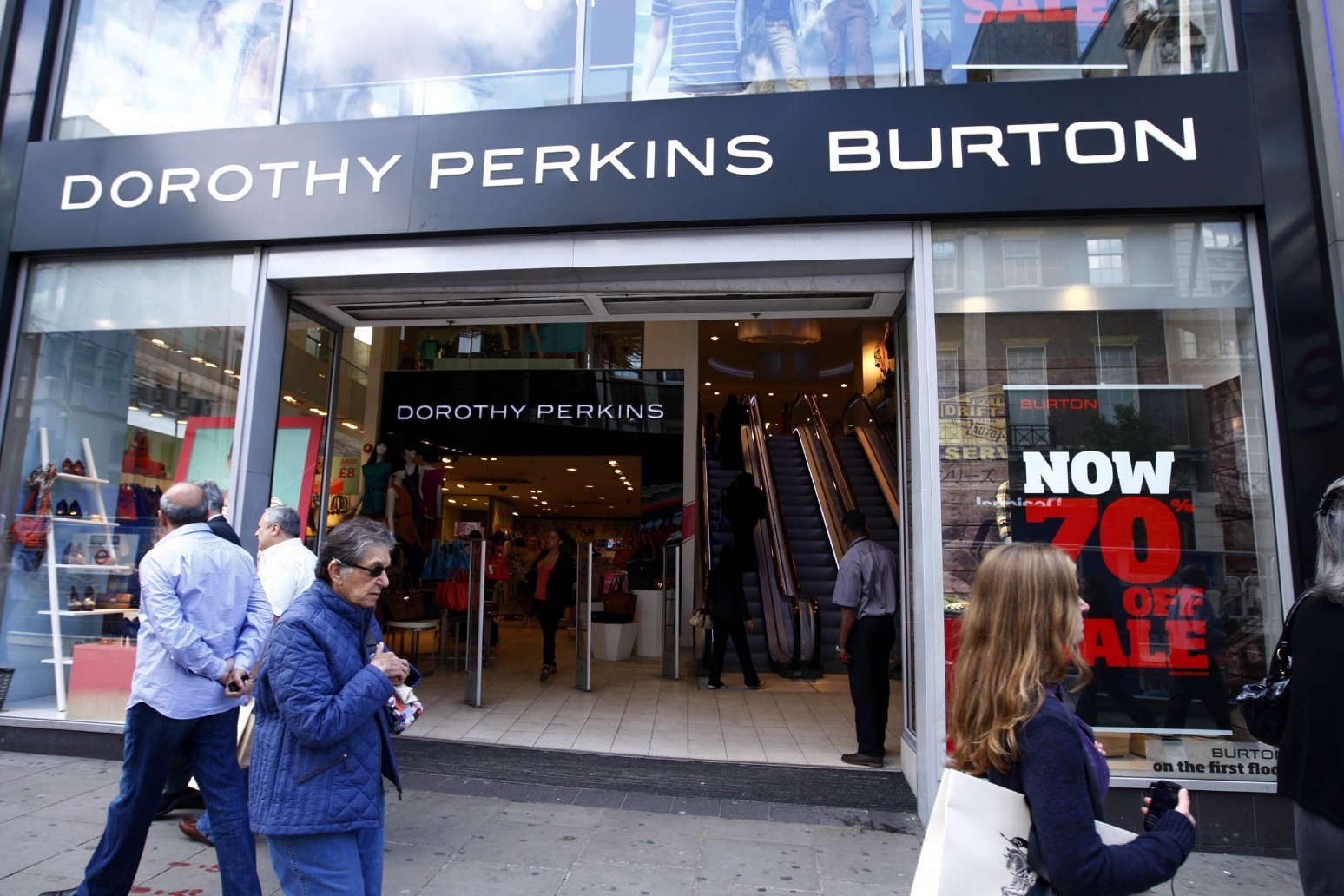
Boohoo in talks to buy Burton and Dorothy Perkins from Arcadia administrators
Bosses at Boohoo have said they are in exclusive talks to buy some of the remnants of Sir Philip Green’s high street empire, as online fashion giants cap off a week of dominance over their brick-and-mortar rivals.
The online fashion brand said it is negotiating with administrators of Arcadia over the future of the Dorothy Perkins, Wallis and Burton brands.
A deal could see Boohoo buy the three, excluding the HIIT brand sold at Burton, although the board stressed that so far these are only discussions and that no deal is guaranteed.
The acknowledgement came after Sky News revealed on Thursday that talks were ongoing between the company and administrators.
In a short statement to investors in London on Friday morning, Boohoo said: “Boohoo Group plc, a leading online fashion group, notes recent media commentary.
“The group confirms that it is in exclusive discussions with the administrators of Arcadia over the acquisition of the Dorothy Perkins, Wallis and Burton (excluding HIIT) brands.
“These discussions may or may not result in agreement of a transaction. A further announcement will be made when appropriate.”
The news caps off a week of online businesses snapping up their older high street rivals.
On Monday, Boohoo said that it has agreed a £55 million deal to buy the brand and website of Debenhams, but will not take over the company’s high street shops, which look set to close.
At the same time, Asos, another online fashion retailer, said it is in exclusive talks to buy other parts of Arcadia.
Asos is interested in the Topshop, Topman, Miss Selfridge and HIIT brands.
According to Sky News, bosses at Boohoo have indicated they might pay a little over £25 million for the Dorothy Perkins, Wallis and Burton brands. A deal could be announced as soon as next week, the broadcaster said.
Arcadia employed around 13,000 people and ran 444 stores across the UK before it entered administration at the beginning of December.
The Covid-19 pandemic and years of under-investment, as well as competition from online brands, ate into the business.
Published: by Radio NewsHub